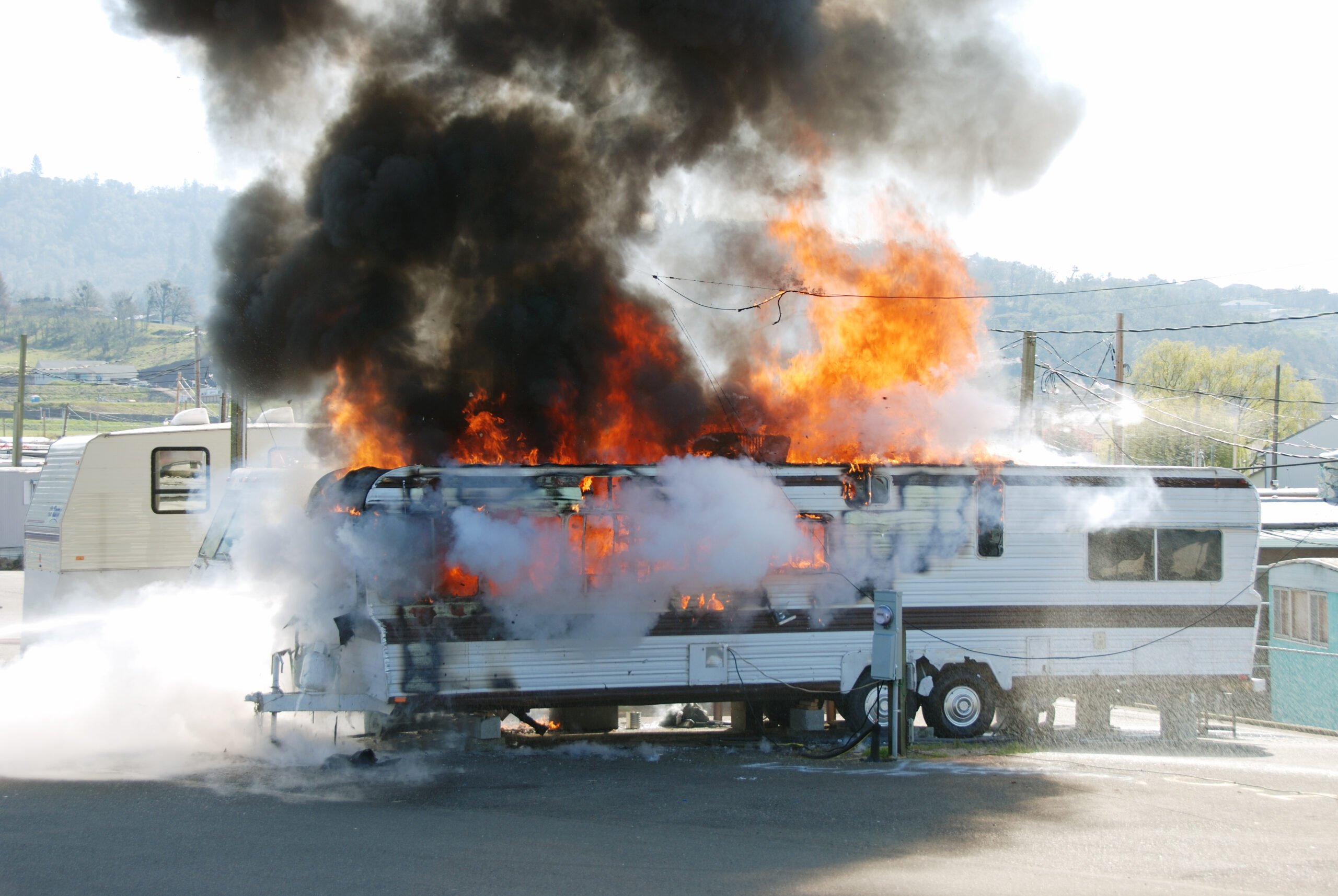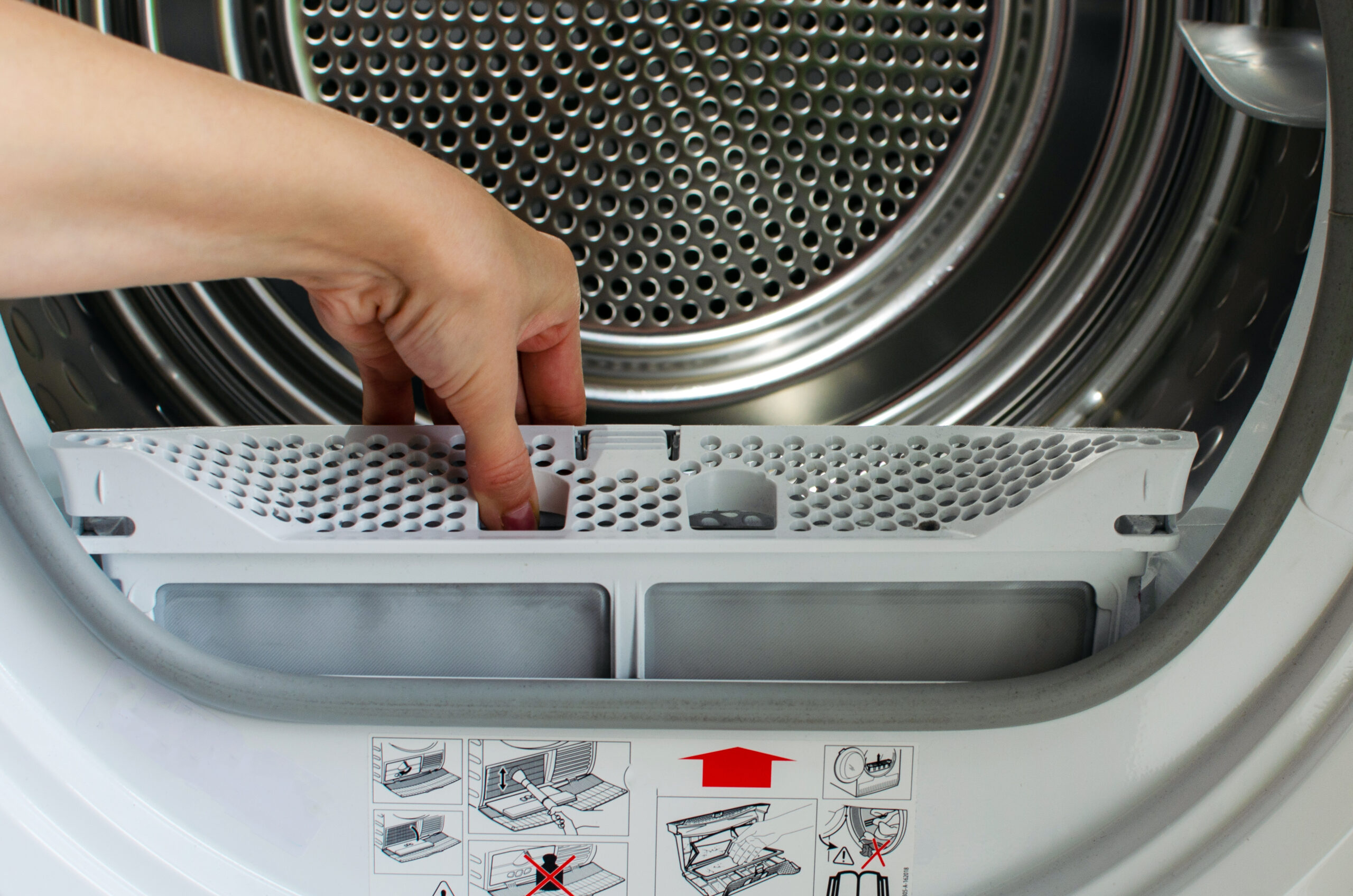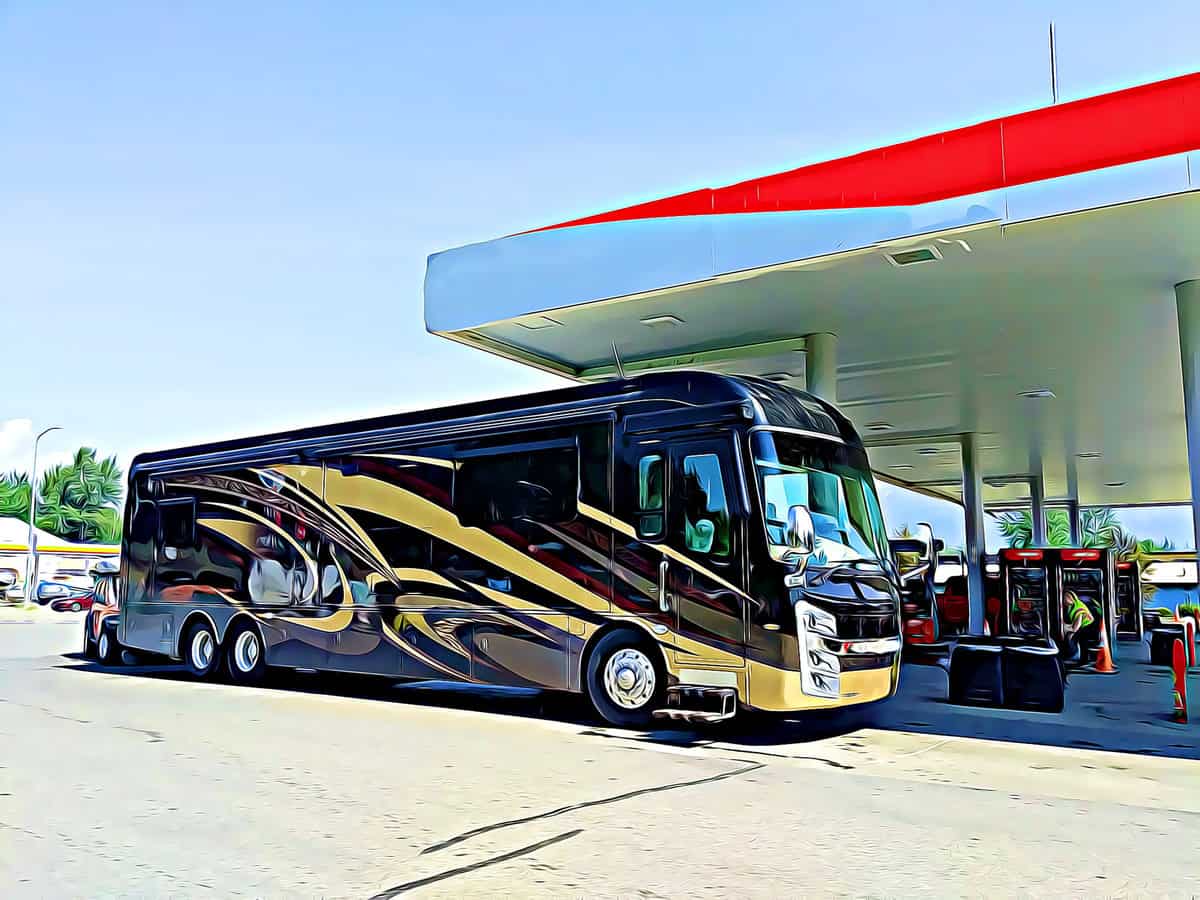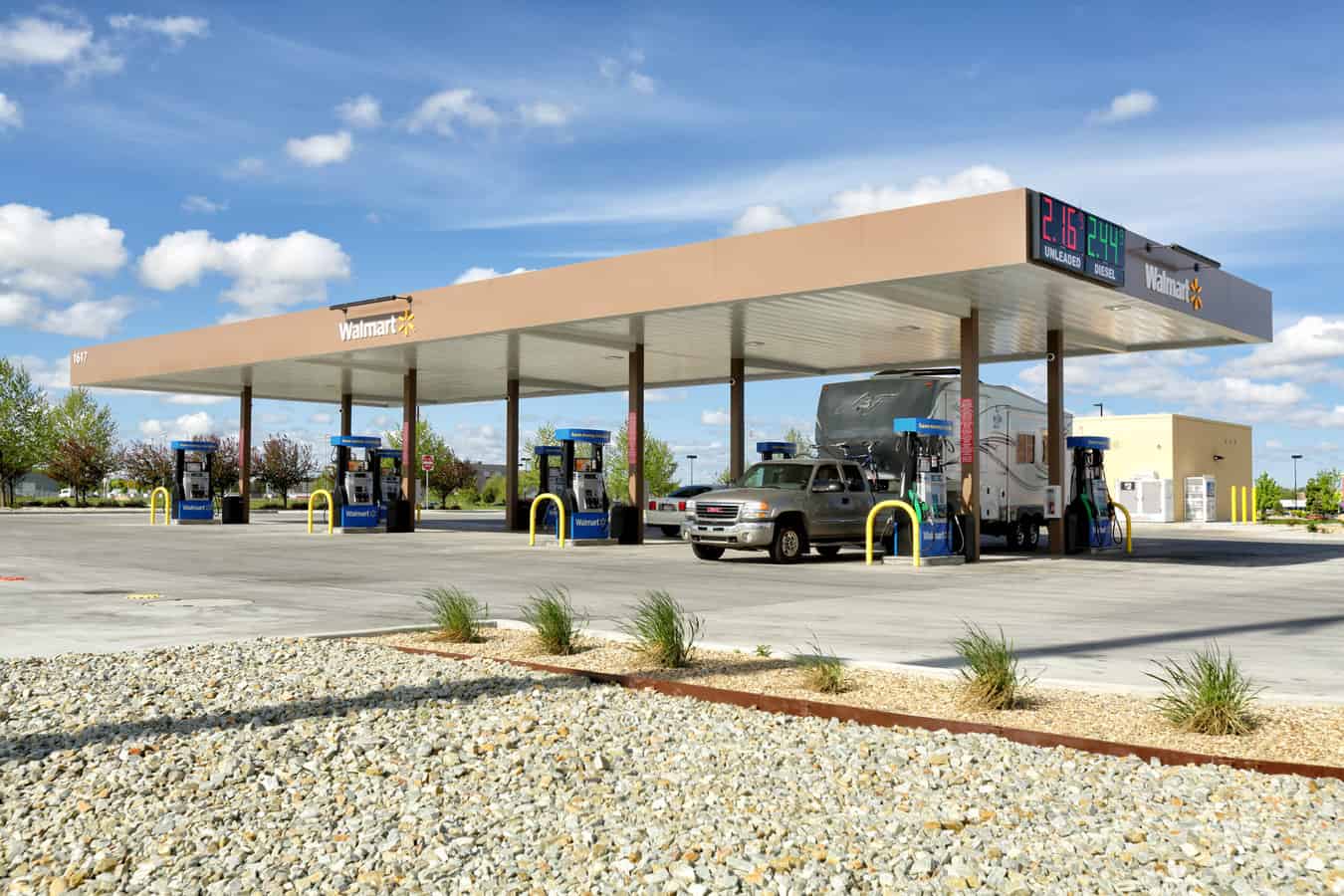
The 10 Biggest RV Fire Dangers You Should Know About
Modern campers are designed to be quite safe, but RV fire dangers still exist. Something can always go wrong. For example, if the wrong piece breaks or you don’t take the necessary precautions, a fire can start inside your RV. This is dangerous to you, your possessions, and the vehicle itself. RV fire dangers should be prevented at all costs.
In order to decrease the chance of explosive situations, it’s best to plan ahead. For instance, you can purchase and install smoke detectors throughout your RV. This will give the earliest possible warning if something goes wrong. Additionally, you can read up on all your RV appliances. Learn how to safely install them and avoid dangerous setups that might start an RV fire.
As long as you’re careful and follow a good RV maintenance schedule, you should be able to minimize RV fire dangers altogether. At the very least, you’ll be better equipped to deal with a fire. Use common sense as well and keep flammable objects away from hot items, unplug electrical devices when you’re not using them, etc.
1. RV propane leaks
One of the biggest fire dangers in an RV is the propane system. Most RVs have a heating system that’s powered by propane, plus additional appliances that use this type of fuel. Although this system is usually quite safe, a propane leak can be disastrous. A single spark can send the entire vehicle up in flames.
To prevent propane leaks, make sure you have a propane/natural gas detector installed in your RV. Sometimes you might be able to smell the leak, but by this point, the damage is usually done. It’s better to have an advance warning system so you can get to safety. A good option for RVers is the EG Natural Gas and Propane Detector.
Additionally, you should have your propane tanks inspected at least once per year. Keep them well-sealed when they’re not in use.
2. Unattended electric space heaters
Lots of RVers supplement their heating system with a propane or electric space heater or two. These are fantastic devices that can easily keep your vehicle warm once the temperature drops. However, it is an extra heat source, and it’s definitely one of the top RV fire dangers you will face.
There are lots of different propane and electric space heaters to choose between, and some are safer than others. Most models come with safety features, so they will automatically turn off if they get too hot or are knocked over. You should stay away from outdated models that don’t have these features.
In addition, be careful about where you set up a heater within your RV. Make sure it’s not close to any curtains, paper, or other flammable materials.
3. Loose items near the RV stove/oven
Speaking of heat sources, take a close look at your kitchen setup. RV kitchens tend to be a bit small and crowded. You only have a limited amount of space for all your appliances, ingredients, and utensils.
Unfortunately, a crowded, small RV kitchen can lead to disaster. Do everything you can to keep your stove and oven clear. These surfaces can easily start a blaze if a loose towel or cord touches them. Unplug and store all your electrical appliances when they’re not in use. Try to keep the cords tucked away.
Of course, you should also practice safe kitchen practices. Don’t leave the stove unattended. Turn the oven off when you’re done using it. Keep the surfaces as clean and uncluttered as possible.
4. RV grills and campfires
Fire dangers often come from inside the RV, but sometimes the bigger risk comes from the outside. If you go camping a lot, you’ll probably end up parking close to an RV grill or campfire from time to time. This isn’t necessarily a problem, especially if you’re careful. But it does create a fire hazard.
Try to keep fires at least 25 feet away from your vehicle. Sparks and embers might still fly up, but they usually won’t cause a problem from this distance. Keep your gas cap firmly closed. Protect your propane tanks and any spare gasoline you might have on hand.
The same rule applies to portable camping grills. It might be tempting to cook underneath your RV awning, but the smoke, grease, and heat can create dangerous conditions.
5. Loose undercarriage wires
There are plenty of fire dangers that are clearly visible, but sometimes danger comes from below. RV undercarriages can sometimes become damaged without us realizing it, especially if we travel on particularly rough roads. If the belly of the vehicle is scraped and torn up, this presents an increased fire risk.
Loose wires and fuel lines might come into contact with heated engine parts and begin to melt. This is incredibly dangerous, and it’s extra scary because you probably won’t notice if you’re not looking for it.
To address this issue, crawl under your RV once you park and check for any loose wires, mechanical parts, or fuel lines that may be damaged. Secure anything that’s hanging down and check for any mysterious leaks or smells. Keep a fire extinguisher in the RV just in case a spark flares up!
6. RV dryer lint
Not every RV has a washer and dryer in it, but those that do are at a greater risk of catching fire. RV dryers in particular are dangerous because of the heat they produce. If you aren’t diligent about cleaning the lint trap and the various vents, shedding fabric can catch fire.
Make sure you always empty the lint trap of your dryer before you start a new load, even if you don’t feel like there’s a lot of buildup. It’s always better to be safe than sorry! Also pay attention to the temperature of the dryer once a load finishes. If it feels unusually warm or has a burning smell, call someone to check it out.

7. RV electrical system problems
There are a variety of reasons why your RV electrical system might develop issues. But if things start to go wrong with the wiring, it’s easy for a stray spark to catch. Once this happens, a fire isn’t far behind.
Therefore, you should do everything you can do protect and maintain your electrical system. Start by using your outlets sparingly. Don’t plug in a ton of different appliances at the same time. Crowding outlets can only lead to trouble. Make sure you unplug things as soon as you’re done using them and avoid extension cords whenever possible.
You should also inspect your RV walls and wiring for signs of rodent damage. If these little critters start nibbling on the wires, the whole system could go down. Rodents are also one of the top fire dangers for RVs.
Finally, you should check your RV’s 12-volt connections/hookups. Loose connections make it easy for things to slip and spark, which can lead to a fire.
8. RV refrigerator malfunction
It seems a bit strange that an RV refrigerator could cause a fire, but it happens more than you might think! Some older RVs might have models that were recalled. Look up your RV refrigerator model so you can see if there are any defects or recalls.
Clean out your RV vents and coils from time to time so you can prevent dust buildup. If too much gunk builds up around these, they can become overheated and might even catch fire. In addition, keep your refrigerator as level as possible, especially if you have an RV absorption refrigerator. These have boilers that can easily overheat if they’re tilted to the wrong angle.
9. Worn-down RV wheels and brakes
Don’t overlook the mechanical parts of your RV as well. When you’re traveling at high speeds with a heavy vehicle, things can heat up very quickly. RV brakes and wheels take on a lot of the stress. They need to be kept in great condition.
Follow an RV maintenance schedule to rotate your wheels and repair/replace the brakes as needed. You definitely don’t want these pieces to break or spark while you’re driving. It could lead to a crash, plus the heat could reach the fuel tank.
10. Old RV batteries
Finally, make sure you maintain and replace your RV batteries on a regular basis. If the battery acid boils away, it can overheat and catch fire. Some old batteries have even been known to explode!
Batteries eventually wear down over time. But they break down faster if you store them in poor conditions or regularly overcharge them.
Track your RV maintenance
Make sure you keep track of all your RV maintenance and repairs with an online tool such as RV LIFE Maintenance. Not only can you keep all of your documents in one place, but you’ll also receive timely reminders when maintenance is due to help you avoid costly repairs and potentially serious accidents.
Continue reading:





Two additional hazards involving flammable items (such as fold up camping chairs) and heat sources:
1) do not lean flammable items over propane burner exhaust ports s.a. water heater and furnace.
2). Do not leave chairs around campfire unattended, especially in windy conditions.
One specific thing to check are the connections in the transfer switch and possibly the brand of transfer switch. Many manufactures have recalled IOTA brand transfer switches. Monaco has not. The neutral wire that runs to the panel was going into meltdown mode in my motorhome. I just happened to open a bay door and noticed a strange odor that wouldn’t go away. I started touching things and noticed that the transfer switch box was hot. The transfer switch was hot and would have probably burn’t everything to the ground. I have bought a better quality replacement.
You left out the #1 cause of all RV fires. Careless cooking! Most RV Fires start in the Galley. A pot boiled dry, a grease fire and towels, cloths, curtains, etc. will send the entire rig up in a matter of seconds.
If you are using propane heaters, be sure you have a vent somewhere open a little. Propane, like any flame, breathes air, so you need to keep an air source open. Propane is very selfish. It will breathe up all your air and then… well, you get the idea.